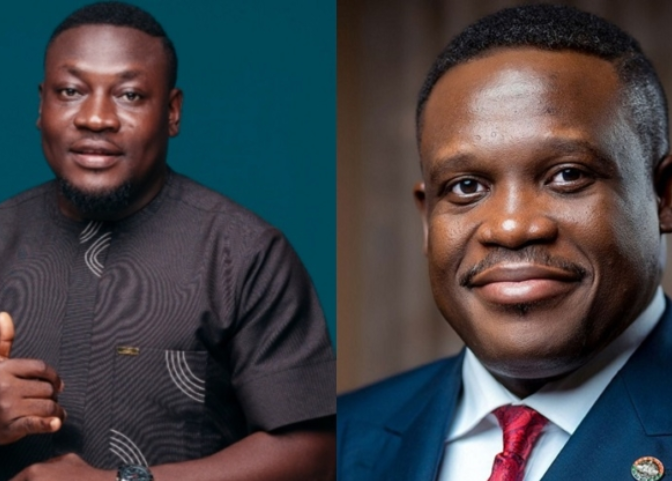Jonatan Nii Laryea, widely known as Jonilar, a social media executive, has submitted a petition to the Minister of Communication, Digital Technology, and Innovations, Samuel Nartey George, concerning unfavorable conditions related to the services of social media platforms used by Ghanaians.
In a letter shared on Facebook, Jonilar urged the Minister to convene a meeting with key stakeholders in the digital media space to discuss these issues and find solutions.
Here is the full text of his letter:
“Dear Sam Dzata George,
I’m happy that you’re the man in charge now, so I feel very confident sharing this with you openly, trusting you will do your thing as usual.
I think it’s time we officially engage the leadership of the most widely used social media platforms in Ghana for a roundtable discussion on topics like monetisation, security, mental health, family values, data management, and how the central government can use social media as a tool to reach the masses.
Now that TikTok is heavily popular among Generation Z and virtually every village I know in Ghana, it’s crucial that we address these matters. We’ve seen governments around the world take steps to benefit their people, even inviting social media owners to parliament to explain their policies and strategies.
As a creator and advocate, I invest heavily in content production, generate millions of views, get people talking, yet earn close to nothing. This is the reality for many passionate creators who leave their homes daily hoping that the content they produce and share will put food on their tables.
Meanwhile, creators in Europe and Asia with smaller followings earn significantly more on these same platforms. Consequently, people are being forced to relocate from Ghana to places where monetisation systems enable them to pay their bills, invest in their passions, and thrive.
It may interest you to know that, to date, social media users still don’t understand the metrics Facebook, YouTube, Spotify, and Apple Music use to calculate the revenue they pay to content owners. Any available metrics online have not been officially endorsed by these platforms.
The “Subscribe” feature Instagram released for Ghanaian users as a monetisation tool is ineffective—I bet only about 0.5% of people in Ghana can say it’s paying them.
Facebook encourages us to post original content only so that we can earn revenue, but when we create content and others download and reuse it (to monetise on their pages), like TV stations in Ghana have done to me, the system doesn’t notify us. This happens because the “Ownership Link,” which is supposed to identify the illegal use of people’s content, is also ineffective. In some cases, you have to get someone outside Ghana to address these issues. My question is: how many people do I have outside Ghana who can do this job for me? I’m asking for my colleagues!
There are so many loose ends we need to investigate and resolve. These platforms have exploited us for far too long simply because we don’t have experts leading this conversation at the government level. We’ve done countless posts, radio discussions, and TV conversations, but now it’s time for action.
Considering the volume of content we create on Ghanaian social media, the engagement it receives, the significant number of us who use social media to run our businesses, and how government institutions across Ghana are using social media as a tool, I believe we now have a voice that must be heard without delay.
I’m sharing this solution-driven post because the lion we know will not allow these social media platforms to drain our energy for their enrichment. We are demanding fair play now.
Jonilar this
Thank you.”
ALSO READ:

